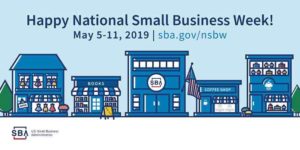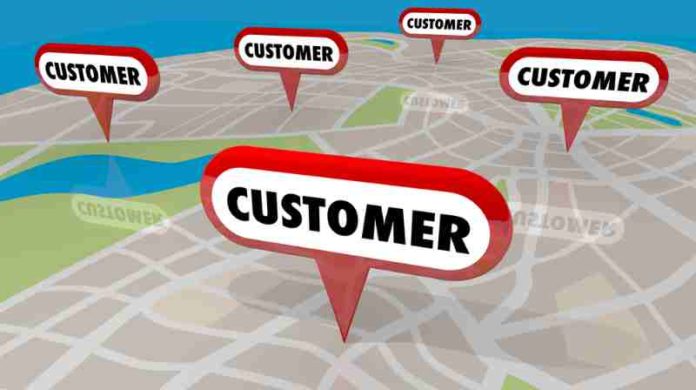#smallbusinessweek How can small business owners reach new customers, at scale?

By Rob Green
I work with thousands of small business owners and one theme I hear repeatedly is that running a successful small business is hard work and growing that business can be even harder.
One of the most common challenges small business owners tell me they face is a lack of resources—human resources, operating capital, or domain knowledge—to access new customer segments and expand into new regions. As a result, it’s not uncommon for small businesses to focus on what they know: reaching their existing customer base and opportunities close to home. The result is they spend a lot of their sales, marketing and advertising resources courting customers they already have.
While large companies with a national or international reach benefit from budgets dedicated to developing brand awareness and new customer acquisition, small businesses struggle to compete for traffic and visibility. Online advertising can be prohibitively expensive on a cost per acquisition basis and, even if small businesses can acquire new customers outside their service area, meeting the demands of fulfilling orders nationwide can be daunting and complex.
So, how can small business owners reach new customers, at scale? Online marketplaces are a great starting point. E-commerce marketplaces can facilitate transactions between buyers and sellers. Buyers benefit from a consolidated shopping experience where they can search and browse across a wide assortment of brands and products. Sellers benefit by making their products available to a large, diverse population of buyers. Online shoppers, whether consumers or business buyers, are most often searching for specific products, not specific brands, and will purchase the items that meet their immediate needs and budget.
To illustrate, consider an office manager in New York who needs to replace their employees’ desk chairs. The office manager might spend time researching office chair options online, with a preference for an ergonomically-friendly design. A small, Texas-based chair manufacturer offers a product and a price that meets the needs of the office manager. But it’s unlikely the chair maker’s website or ad will surface at the top of search engine results because small companies rarely have the SEO/SEM budget to compete with larger competitors.
Considering 97% of shoppers at least browse on an online marketplace, a seller is far more likely to reach new customers there than through their own site. Our Texas-based office equipment manufacturer is far more likely to meet our New York office manager, and many more new customers, on an eCommerce marketplace – growing their business without having to launch a nationwide sales or marketing campaign. Last year, consumers spent nearly $3 trillion online, and it’s estimated B2B online sales could reach over $1 trillion in the next two years. By hosting products on an online marketplace, a small business owner can ensure they reach a broader demographic and pull revenue from a new, larger pool of shoppers.
Additionally, as many small business owners know, running your own online store is time-consuming. Many marketplaces offer services that help sellers make the most of their online selling experience. To help with the ongoing account management requirements that go into running an online store, some marketplaces offer dedicated resources who assist with setting up profiles, uploading products, SKU numbers, and descriptions—helping to free up small business owners to focus on what’s really important: product quality and ensuring their customers’ satisfaction. It also frees up owners to focus on new ways to highlight and differentiate their products through enhanced video content and online social marketing channels. Encouraging interaction with products not only gives potential buyers peace of mind but also helps to convert them into customers.
While a company-owned presence will always serve the purpose of communicating to a business’ established customer base, small business owners looking to reach new customers and expand into new market segments will be able to leverage an online marketplace to take their company to the next level.
Rob Green is the Director of Sales for Amazon Business.
Customers stock photo by iQoncept/Shutterstock







